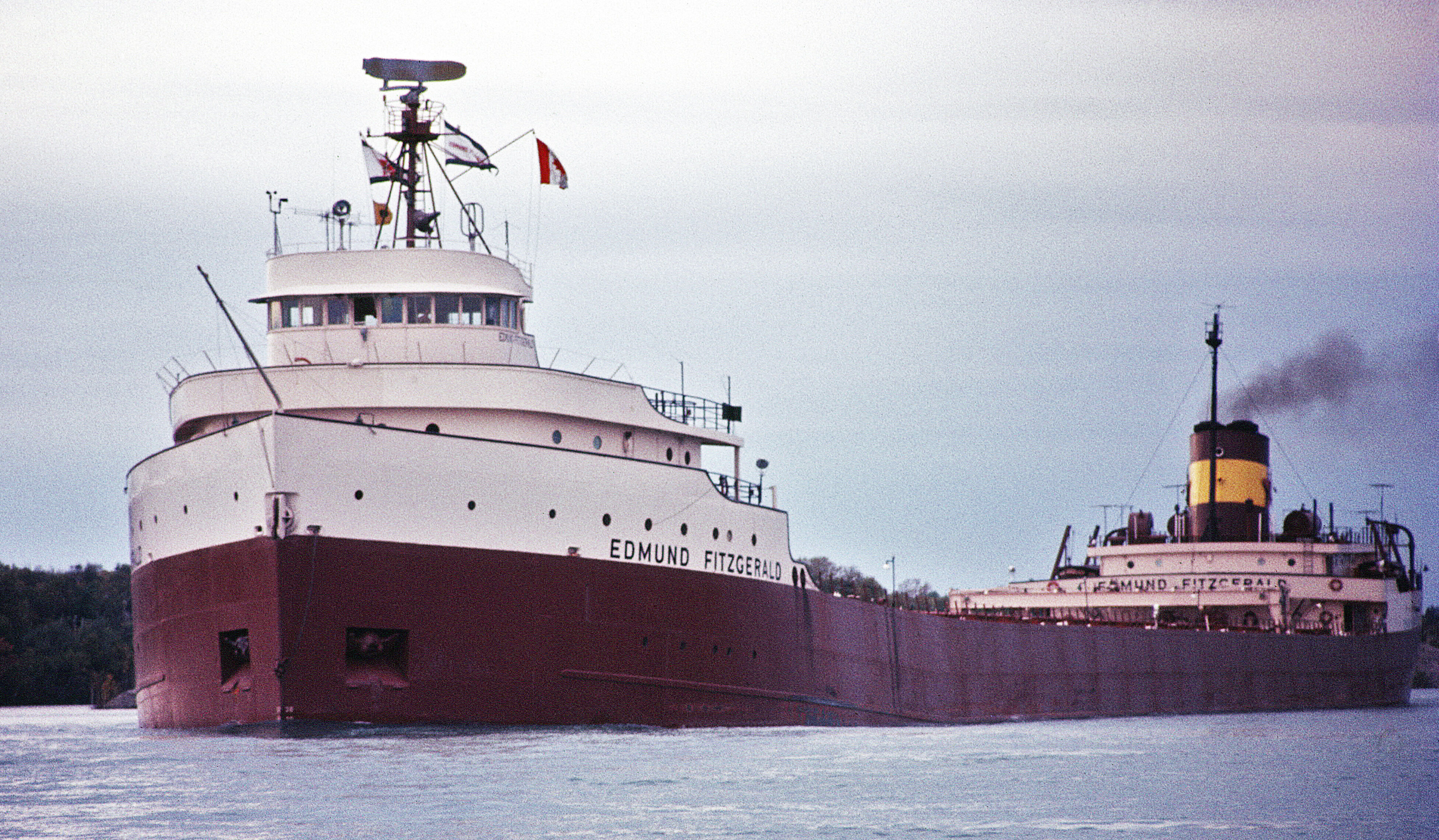The Edmund Fitzgerald

The tragic story of the SS Edmund Fitzgerald has captivated generations, and the legacy of this ill-fated ship continues to inspire art and storytelling, including the hauntingly beautiful song “The Wreck of the Edmund Fitzgerald” by Gordon Lightfoot and the play Ten November by Steven Dietz.
The History of the Edmund Fitzgerald
Launched in 1958, the SS Edmund Fitzgerald was one of the largest freighters on the Great Lakes, measuring over 700 feet in length. It was a symbol of industrial strength, transporting taconite iron ore from mines in Minnesota to ironworks in other Great Lakes states. For nearly two decades, the ship made routine journeys, enduring the treacherous waters of Lake Superior.
However, on November 10, 1975, during a particularly fierce storm, the Edmund Fitzgerald tragically sank, taking all 29 crew members aboard with it. Despite radio communications indicating trouble, the exact cause of the sinking remains a mystery. The ship’s sudden disappearance in 30-foot waves and hurricane-force winds has inspired countless speculations, adding to the enduring mystique of the tragedy. The wreck was later discovered in two pieces at the bottom of Lake Superior, lying at a depth of over 500 feet.
The Cultural Impact: Gordon Lightfoot’s Song
Gordon Lightfoot’s 1976 song, “The Wreck of the Edmund Fitzgerald,” memorialized the event in a way few songs about historical tragedies have managed to do. The ballad paints a vivid picture of the ship’s final voyage and the fate of its crew, using evocative lyrics that stir a deep emotional response in listeners. Lightfoot's song became a hit and brought widespread attention to the tragedy, ensuring the memory of the Edmund Fitzgerald would never fade.
Lightfoot’s lyrical storytelling taps into the emotional core of the event, honoring the lives lost while invoking the powerful, unpredictable forces of nature that contributed to the ship’s demise. His haunting melody and poignant verses have become synonymous with the memory of the Fitzgerald, giving the story a place in popular culture.
The wind in the wires made a tattle-tale sound
When the wave broke over the railing
And every man knew, as the captain did too
‘Twas the witch of November come stealin’
-Gordon Lightfoot, “The Wreck of the Edmund Fitzgerald” (1976)
The Play: Ten November
Steven Dietz’s play, Ten November, adds another layer to the legacy of the Edmund Fitzgerald. Written in 1987, the play explores the personal and collective impact of the tragedy on the working-class men and their families. Dietz's work delves into the human side of the story, focusing on the lives of those aboard the ship and the ones they left behind.
Ten November is unique in its ability to blend historical events with fictionalized emotional depth, offering audiences a chance to connect with the tragedy in a profoundly personal way. The play incorporates live folk music—much like Lightfoot’s ballad—which adds to its emotional weight and serves as a homage to the working-class culture that surrounded the Great Lakes and maritime industry at the time.
Both the song and the play are centered around the themes of loss, memory, and resilience. Where Lightfoot’s ballad offers a musical eulogy to the ship and its crew, Ten November provides a deeper exploration of the individual lives touched by the tragedy. Together, they serve as poignant reminders of the fragility of human life when faced with the immense, unforgiving power of nature.
Conclusion
The sinking of the SS Edmund Fitzgerald has left an indelible mark on history, art, and culture. Gordon Lightfoot’s iconic song and Steven Dietz’s Ten November both serve as powerful tributes to the ship and its crew, reminding us of the courage and resilience of those who live and work on the Great Lakes. As Ten November takes the stage this season, audiences will have a unique opportunity to reflect on this historic tragedy through art and performance, experiencing the profound human emotions that surround loss, survival, and remembrance.
Artistree's production of Ten November will be at the Grange Theatre from November 8th through November 17th.